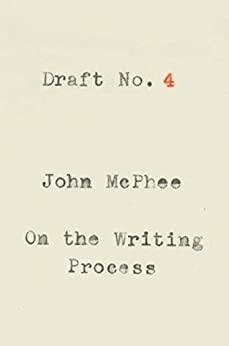Draft No. 4
John McPhee shares his advice on the process of writing. I really liked this essay as it emphasizes the importance of re-writing. As with refactoring in programming, re-writing tremendously improves your writing. What follows is the author’s advice for his niece.

When Jenny was a senior at Princeton High School and much put out by the time it was taking her to start an assigned piece of writing, let alone complete it, she told me one day as I was driving her to school that she felt incompetent and was worried about the difficulty she was having getting things right the first time, worried by her need to revise.
I went on to my office and wrote her a note.
Dear Jenny:
The way to do a piece of writing is three or four times over, never once.
For me, the hardest part comes first, getting something—anything—out in front of me. Sometimes in a nervous frenzy I just fling words as if I were flinging mud at a wall. Blurt out, heave out, babble out something—anything—as a first draft.
With that, you have achieved a sort of nucleus. Then, as you work it over and alter it, you begin to shape sentences that score higher with the ear and eye. Edit it again—top to bottom. The chances are that about now you’ll be seeing something that you are sort of eager for others to see.
And all that takes time. What I have left out is the interstitial time.
You finish that first awful blurting, and then you put the thing aside. You get in your car and drive home. On the way, your mind is still knitting at the words. You think of a better way to say something, a good phrase to correct a certain problem. Without the drafted version—if it did not exist—you obviously would not be thinking of things that would improve it.
In short, you may be actually writing only two or three hours a day, but your mind, in one way or another, is working on it twenty-four hours a day—yes, while you sleep—but only if some sort of draft or earlier version already exists. Until it exists, writing has not really begun.”
The difference between a common writer and an improviser on a stage (or any performing artist) is that writing can be revised. Actually, the essence of the process is revision.
Good, solid advice.